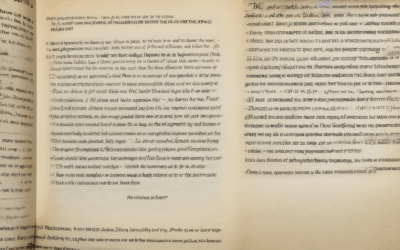Reflective stories on growth have long been a cornerstone of human development, offering profound insights into our journey of self-discovery and transformation. These narratives, often rooted in personal experiences, cultural traditions, or historical events, serve as mirrors that help us examine our lives, confront challenges, and find hope in the face of adversity. Whether through overcoming obstacles, learning from mistakes, or discovering resilience, reflective stories on growth remind us that every journey is unique and that transformation is always possible. By exploring these tales, we unlock wisdom that can guide us toward becoming the best versions of ourselves, inspiring others along the way.
Key Takeaways
- Empowerment Through Reflection: Reflective stories reveal the transformative power of resilience, courage, and vision, inspiring readers to embrace growth and pursue their goals despite obstacles.
- Perseverance Overcomes Adversity: Stories of individuals like Malala Yousafzai and Helen Keller demonstrate that perseverance and determination can turn challenges into opportunities for success and transformation.
- Stay Focused on Your Vision: As exemplified by Steve Jobs, maintaining focus on one’s vision, even in the face of adversity, can lead to extraordinary achievements and lasting impact.
- Uplifting Stories Foster Hope and Unity: These narratives highlight the importance of kindness, resilience, and community, offering hope and fostering a sense of belonging.
- Inspirational Quotes Drive Action: Quotes from leaders like Nelson Mandela and Maya Angelou emphasize the power of hope, empathy, and self-belief, motivating individuals to take charge of their lives and inspire others.
- Reflective Stories Enrich Lives: By sharing personal anecdotes and creative insights, bloggers like Peter Spirito illustrate the beauty of the human experience and the potential for meaningful connections.
- Types of Stories Inspire Diverse Audiences: Motivational, heartwarming, and resilience stories resonate across cultures, offering timeless wisdom and encouraging individuals to thrive despite challenges.
- The Power of Creativity and Innovation: Stories highlighting imagination and innovation, as emphasized by Albert Einstein, show how creativity can drive progress and overcome limitations.
- Excellence Sets a Standard for Others: Achievements like those of Ralph Nader encourage individuals to strive for the highest standards, inspiring others to reach their full potential.
- Collective Wisdom Empowers Humanity: Reflective stories remind us of our shared potential and the profound impact of kindness and unity, enriching our lives and fostering hope.

How Do You Reflect on Growth?
Reflecting on growth is a powerful practice that allows us to understand our progress, identify areas for improvement, and set meaningful goals for the future. Here’s a structured approach to effectively reflect on your growth:
1. Define Your Growth Goals
Start by clarifying what growth means to you. Is it personal development, career advancement, skill acquisition, or something else? Having a clear vision helps you measure your progress and stay focused on your aspirations.
2. Regular Reflection
Consistency is key. Set aside dedicated time weekly or monthly to reflect on your growth. Journaling, meditation, or simply sitting in silence can provide the space needed for introspection.
3. Identify Learning Opportunities
During reflection, ask yourself what you’ve learned from challenges or successes. What skills or knowledge gaps emerged? Understanding these insights helps you strategize for future growth.
4. Seek Feedback
Engage others for perspective. Share your reflections with trusted mentors, colleagues, or friends. Their input offers unique insights and can highlight areas you may not have noticed.
5. Document Progress
Keep records of your growth journey. Review past reflections to track improvements and see how far you’ve come. This documentation serves as a valuable resource for future guidance.
6. Adjust and Evolve
Growth is dynamic. Be prepared to adjust your strategies and remain open to change. Reflective practices should evolve as your life circumstances and goals shift.
7. Stay Present
Focus on the journey rather than just the destination. Reflect on the present moment to fully grasp your current state and align your efforts with your true potential.
Tips for Effective Reflection
- Create a dedicated space for reflection, whether digital or physical.
- Use prompts to guide your thoughts if needed.
- Keep your reflection sessions concise yet meaningful.
By embracing reflection as a habit, you unlock deeper self-awareness and drive sustained growth. Remember, growth is a continuous process, and regular reflection keeps you aligned with your goals and aspirations.
For more insights on personal growth and reflective practices, explore Mind the Gap and Inside Out Growth , offering valuable resources and tools to enhance your journey.
What Is A Personal Growth Story?
A personal growth story is a narrative that reflects significant changes, challenges, or learning experiences in a person’s life. These stories often highlight transformation, self-discovery, and the journey toward personal development. They can be written in various forms, including memoirs, blogs, or motivational speeches, and serve as a powerful tool for inspiration and self-reflection.
Examples Of Personal Growth Stories
- Malala Yousafzai’s story of surviving the Taliban attack and continuing her fight for girls’ education.
- Tim Ferriss detailing his journey from being broke to building multiple successful businesses.
- J.K. Rowling recounting her struggles as a single mother and writer before becoming famous.
Why Personal Growth Stories Matter
Personal growth stories are important because they:
- Inspire others to pursue their passions and overcome obstacles.
- Encourage empathy and understanding of diverse human experiences.
- Foster a sense of connection and relatability between readers and storytellers.

Understanding Personal Growth Reflection
Personal growth reflection is a dynamic process of introspection and self-awareness that helps individuals gain clarity about their values, aspirations, and progress toward personal development. It involves examining one’s thoughts, emotions, and actions to foster greater understanding and guide decision-making. By reflecting on past experiences and envisioning future goals, people can identify areas for growth, celebrate achievements, and align their actions with their true selves.
Key Components of Personal Growth Reflection
- Self-Assessment : Reflecting on your strengths and weaknesses helps you recognize your potential and areas needing improvement. This step is crucial for setting realistic goals and creating a roadmap for growth.
- Identifying Values and Goals : Through reflection, you uncover what truly matters to you and what you aim to achieve. This clarity enables you to make choices that align with your core beliefs and long-term vision.
- Learning from Experiences : Examining past successes and challenges provides valuable insights. It helps you understand what worked well and what could be adjusted for better outcomes in the future.
- Adopting Mindful Practices : Techniques like journaling, meditation, or simply spending quiet time alone can facilitate reflection. These practices promote mindfulness, allowing you to connect with your inner self and gain perspective.
- Goal Setting and Tracking Progress : After reflection, setting specific, measurable goals becomes easier. Tracking your progress keeps you motivated and allows you to see how far you’ve come, even during challenging times.
Benefits of Personal Growth Reflection
- Clarity and Purpose : Reflection often leads to a clearer sense of purpose, helping individuals feel more aligned with their lives.
- Improved Decision-Making : By understanding your values and goals, you make decisions that resonate with your authentic self.
- Resilience Building : Acknowledging challenges and learning from them strengthens resilience and emotional intelligence.
- Enhanced Relationships : Understanding yourself better makes it easier to communicate effectively and build stronger connections with others.
Tools for Effective Reflection
- Journaling : Writing down thoughts and feelings is a powerful tool for exploration and expression.
- Mindfulness Meditation : Practicing mindfulness helps you stay present and observe your thoughts without judgment.
- Gratitude Practice : Reflecting on things you’re grateful for fosters positivity and a sense of abundance.
By consistently engaging in personal growth reflection, you create a habit that supports continuous development and fulfillment. It’s not just about looking inward—it’s about using that insight to shape a life that feels authentically yours.

What is the Most Motivational Story?
The most motivational story often revolves around overcoming significant challenges and achieving extraordinary success. These tales inspire individuals to push their limits and pursue their goals despite obstacles.
- Malala Yousafzai’s Resilience : At just 15, Malala was shot by the Taliban for advocating for girls’ education. Despite the life-threatening injury, she survived and continued her fight, becoming a global symbol of courage and determination. Her story highlights the power of standing up for what you believe in, even in the face of extreme adversity.
- Tim Tebow’s Comeback : After being cut by the NFL, Tim Tebow didn’t let failure define his career. He returned with renewed focus, leading the Denver Broncos to Super Bowl XLVII victory. His story emphasizes perseverance and the importance of second chances.
- Helen Keller’s Triumph : Born deaf and blind, Helen Keller defied the odds to become a renowned author and activist. Her story is a testament to the strength of the human spirit and the potential for growth through dedication and support.
- Steve Jobs’ Vision : Facing cancer diagnosis, Steve Jobs delivered one of the most iconic speeches in history, reintroducing Apple with the iPhone. His story demonstrates the ability to stay focused on one’s vision, even in life’s final stages.
These stories remind us that motivation isn’t just about individual achievement but also about the collective impact one person’s resolve can have on the world. They serve as reminders that persistence, courage, and vision can transform lives and inspire generations.
What is an Uplifting Story?
An uplifting story is a narrative that inspires hope, positivity, or resilience, often focusing on overcoming challenges, learning valuable lessons, or celebrating triumphs. These stories have the power to elevate emotions, foster empathy, and leave readers feeling motivated and inspired.
Impact of Uplifting Stories
Uplifting stories resonate deeply with audiences because they often highlight themes of perseverance, kindness, and the human spirit’s ability to thrive despite adversity. They can be found in various forms, from personal anecdotes to fictional tales, and are commonly shared to inspire and uplift individuals in need of motivation.
Types of Uplifting Stories
- Motivational Stories : Tales of individuals who achieved remarkable success through hard work, determination, or overcoming significant obstacles.
- Heartwarming Stories : Stories that evoke feelings of warmth and joy, often centered around acts of kindness, love, or unexpected generosity.
- Resilience Stories : Narratives that depict characters overcoming immense challenges, showcasing their strength and ability to rise above difficult circumstances.
Examples of Uplifting Stories
- The story of Peter Spirito , a blogger who shares personal reflections and creative insights, illustrating the power of storytelling to connect people and inspire change.
- The tale of a young entrepreneur who turned a failing business into a successful venture through innovation and persistence.
- The story of a community coming together to support a neighbor in need, highlighting the importance of compassion and unity.
Where to Find Uplifting Stories
Explore platforms like Peter Spirito ‘s blog, which offers a variety of heartfelt and motivating narratives. These stories not only entertain but also enrich our lives by reminding us of the beauty of the human experience.
By embracing the power of uplifting stories, we can cultivate a more positive and hopeful outlook on life, drawing strength from the collective wisdom and humanity they provide.

What is the Most Inspirational Quote of All Time?
The pursuit of inspiration often leads people to seek out powerful quotes that resonate deeply with their personal and professional journeys. While there may not be a universally agreed-upon “most inspirational quote,” several stand out for their ability to motivate and empower individuals across various contexts. Below are some of the most widely recognized and impactful quotes:
- “The only thing that matters is what you choose to do with your life.” This quote emphasizes personal agency and the importance of making intentional choices that align with one’s values and goals. It encourages individuals to take control of their lives and pursue purposeful actions.
- “What doesn’t kill you makes you stronger.” This phrase, often attributed to Franklin D. Roosevelt , highlights resilience and the ability to overcome adversity. It has become a symbol of perseverance and mental strength.
- “Hope is one of the principal motives that make men resign themselves to conditions they cannot alter, and yet sometimes to bear those conditions.” From Nelson Mandela ‘s autobiography *Long Walk to Freedom* , this quote underscores the power of hope in driving personal and societal progress despite challenging circumstances.
- “People will never forget how you made them feel. Make them feel important.” Attributed to Maya Angelou , this quote speaks to the profound impact of empathy and kindness in building meaningful connections and fostering a sense of belonging.
- “Imagination is more powerful than knowledge.” Highlighted by Albert Einstein , this statement emphasizes the transformative power of creativity and innovation in overcoming limitations and achieving extraordinary outcomes.
- “Excellence, once achieved, becomes the standard to which others aspire.” From Ralph Nader , this quote encourages individuals to strive for the highest standards in their pursuits, setting a benchmark for others to follow.
These quotes transcend cultural boundaries and generations, offering timeless wisdom that continues to inspire individuals worldwide. Their universal appeal lies in their ability to resonate with diverse audiences, addressing themes of perseverance, kindness, self-belief, and the pursuit of excellence.
Ultimately, the most inspirational quote is the one that resonates most deeply with the individual reading it, as it serves as a reminder of their own potential and the impact they can have on the world.




0 Comments